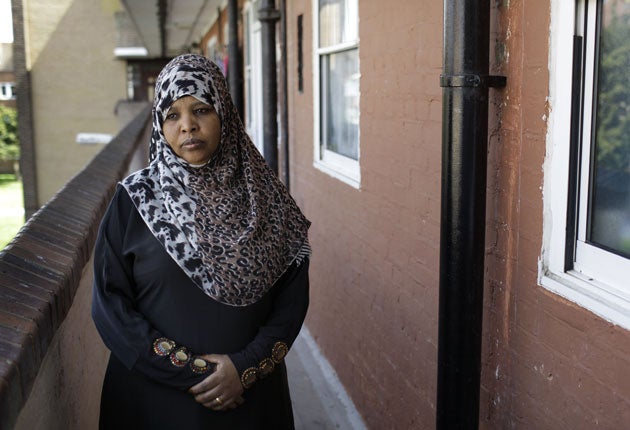End to free language classes for immigrants
Vulnerable women will be particularly affected under new rules

Thousands of vulnerable women face being priced out of classes that enable them to learn English, under new rules launched tomorrow. Changes to benefit entitlement mean almost 80,000 people across England could lose the right to free language classes, with women representing more than two-thirds of those affected – 58,900 enrolments – according to the Government's own assessment.
The move calls into question the Prime Minister's commitment to promoting "integration" among migrant groups, critics claim. David Cameron insisted immigrants to Britain "learn English, so that... they can be more integrated into our country," in a speech in Parliament earlier this year.
The new changes mean that only people on "active benefits" – jobseeker's allowance or employment support allowance – would be entitled to full funding for ESOL (English for speakers of other languages) courses. The changes are intended to focus resources on those seeking employment. Other people on so-called "inactive" benefits, such as income support and housing benefits, or those on low incomes – including asylum-seekers and refugees – will have to pay at least 50 per cent of the cost of their courses.
These cost as much as £1,000 per academic year and Donna Covey, chief executive of the Refugee Council, said asking people to find this money was akin to telling them "they have to fly to the moon".
"Women are the most likely not to be on active benefits and are therefore the most likely to be affected by this policy. The Government says everybody has the right to integrate, but it is impossible to integrate if one can't speak English. To ignore the needs of the most vulnerable people in society makes a mockery of the Big Society rhetoric," she said.
Mothers with young children, wives dependent on their spouses and newcomers to the country will be hard hit by the move. Asylum-seekers, who comprised 9 per cent of the 77,000 enrolments for free English classes in 2010, will also be badly affected.
In Scotland, most people on low incomes and benefits are entitled to free ESOL courses. In Wales ESOL is free for all asylum-seekers and refugees, with costs primarily met by the Welsh Assembly.
Zainab Duale, 34, lives in Woolwich, south-east London, with her husband, Mohamud, who works as a part-time manager in a care agency. She fled Somalia in 2002, after her two brothers were killed during conflict. She wants to improve her English so that she can find a job in child care. Reliant on her husband's income and receiving just over £92 a week in housing and council-tax benefits, Ms Duale will be ineligible for free ESOL classes under the changes.
"I don't really understand what I am going to do, because it is all so confusing. ESOL has helped me with lots of things. From getting the Tube on my own to understanding people on the street when they ask me a question. I study two days a week and it has made me confident and more comfortable. I can't afford to pay hundreds of pounds for my course; it is too difficult for me – £300 is a lot of money if you don't work. If I lose my classes, I will never be able to get a job."
The Government admits that "some groups or sub-groups of learners" will be disproportionately affected. John Hayes, the Skills minister, said he would work with the Department for Communities and Local Government to develop "new forms of support" but refuses to confirm how much money will be committed. He rejects calls to delay the changes.
Martin Doel, of the Association of Colleges, said there was "no doubt" the Government's own assessment "came too late". "If people drop out of learning, it can be difficult to get them back again. This is indicative of policy made quickly and rushed through without taking full heed of the consequences," he warned.
Paul Blomfield, a Labour MP for Sheffield, where there are more than 3,000 learners, 83 per cent of whom are women, predicted the changes would have "devastating" effects on "settled communities".
Elizabeth Knight, head of ESOL at City and Islington College in London, said the new plans sounded like "second-rate provision" which would "take ESOL back 30 years".
Case study...
Yordanos Daniel, 24 moved from Eritrea to Nottingham two years ago in order to get married. Now, separated from her partner and the mother of a one-year-old baby girl, Ararat, she is ineligible for jobseeker's allowance. She has been taking language classes for 16 weeks in the hope that improved English will help her to find a job. Unable to speak more than a few words of English and receiving only £53 a week in income support, Ms Daniel says she will be unable to continue studying under the new changes
"My English is very low and I need to improve it. I can't communicate with anyone; I can't take my child to hospital or even go shopping. I don't go out much because I can't do anything alone, I always need an interpreter.
"I keep thinking, what job is going to want me like this? I am worried about next year because I know I can't pay for courses. I don't know what I will do. It is unfair."
Subscribe to Independent Premium to bookmark this article
Want to bookmark your favourite articles and stories to read or reference later? Start your Independent Premium subscription today.

Join our commenting forum
Join thought-provoking conversations, follow other Independent readers and see their replies